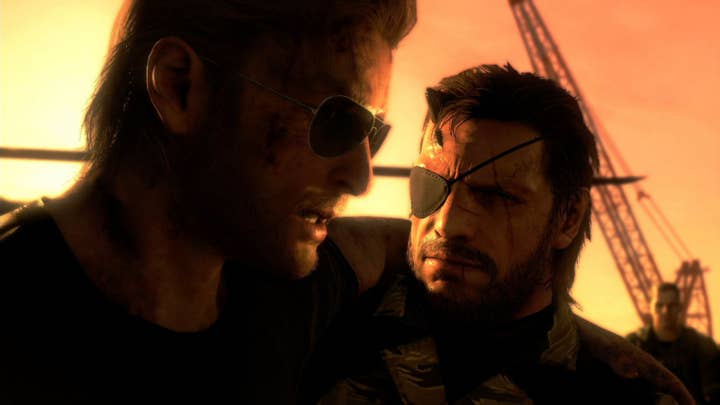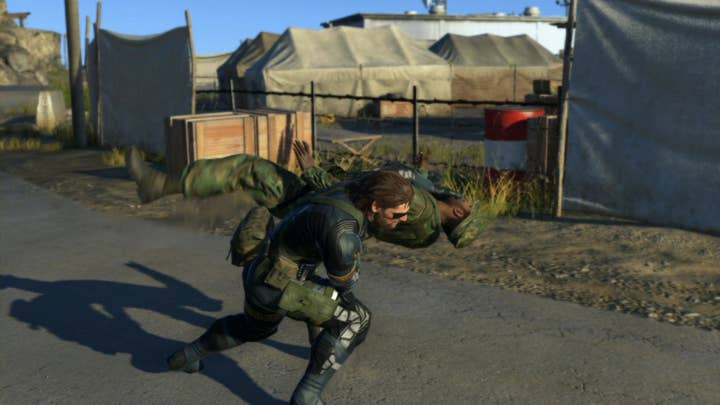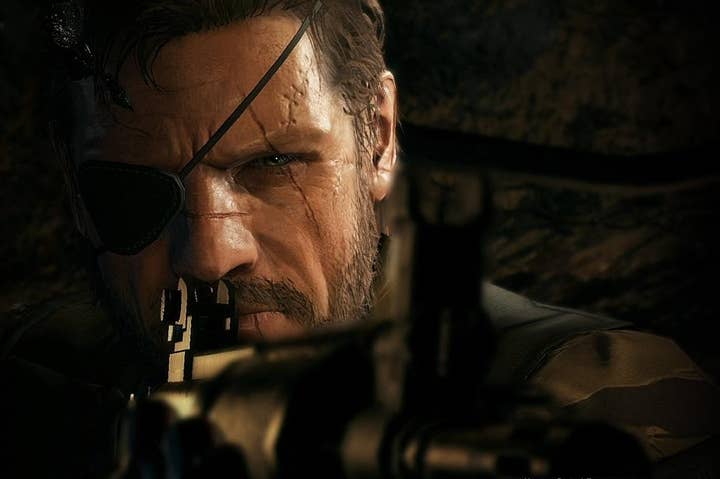Critical Consensus: Metal Gear Solid proves that size matters
Ground Zeroes' expert design, brief play-time and hefty price sharply divides the critics
Truly divisive games are rare, but in many ways they are more valuable than those that unite opinion. Dead Island, for example, or Deadly Premonition; games whose appeal transcends the criteria by which review scores are generally awarded. Anathema for some, catnip for others, but distinctive to their very core.
The point is that a wide spread of review scores indicates certain qualities that an uninterrupted stream of 8s and 9s seldom describe. Universal acclaim can be applied to distinctive work, of course, but just as often the recipient will be an expertly crafted exercise in covering old ground; another iteration of the same familiar mechanics, with just enough girth and a thick enough coat of polish to avoid easy criticism and tick the box marked, 'Value For Money.'
"The mission is not only short, it's dull. Underwhelming doesn't begin to describe it"
Polygon
Despite ostensibly being a sequel in one of the industry's most treasured franchises, Metal Gear Solid 5: Ground Zeroes handily side-steps any fears about playing it safe and walks right onto dangerous ground. Effectively a cold-open for Metal Gear Solid 5: The Phantom Pain - a game with no fixed release date at the time of writing - it is a brief, contained examination of Hideo Kojima's new direction for the series, a single mission with multiple objectives. It will also cost somewhere between £20 and £30, depending on where you shop.
In an era where games and their special editions are available for as much as several hundred pounds and as little as nothing whatsoever, it could be argued that there's no such thing as an innapropriate price-point. But if Ground Zeroes' army of reviewers holds that belief, it doesn't show in their final assessment. Pretty much every available review starts with a few paragraphs about the game's structure and size: for some, it's the sign of a cash-grab by Konami; for others, it's a unique approach that ultimately disguises the game's admirable depths.

Polygon is decidedly in the former camp, awarding Ground Zeroes 5.5 out of 10 for an experience that, "is hardly worthy of the franchise moniker." Predictably enough, the game's size is presented as the most egregious of its problems, taking just 76 minutes of the reviewers' time - "That's not the game clock, either. That's real time." - to complete a single map that can be traversed end-to-end in five minutes.
"The mission is not only short, it's dull. Your objectives amount to going to one place, rescuing a prisoner, going to another place, rescuing another prisoner, and then calling in a helicopter to get you out of there. Underwhelming doesn't begin to describe it.
"Upon completing the main mission, Side Ops are unlocked. These are missions that take place on the same military base, but with different objectives and parameters... These Side Ops help to pad the play time and value of Ground Zeroes, but you're still returning to the same map, over and over again."
"This is surely the most mechanically sound, fluidly designed Metal Gear Solid game yet made"
Kotaku
Polygon notes that Metal Gear Solid is a "beloved franchise," and while it doesn't regard Ground Zeroes as worthy of the name, that reputation garners considerably more benefit of the doubt than another product offering this amount of content at this price would generally receive. Metal Gear Solid is one of the most dense and intricate universes in the gaming canon, and that lends this single map and its potentially brief play-time an unmistakable and deserved weight. It is a sign of what's to come, and for many that will be enough.
In its 3.5-star review, Joystiq questions the idea that Ground Zeroes is the "glorified demo" the cynics were anticipating, and points to several refinements to the formula for which Metal Gear Solid is known. Perhaps the most welcome of these will be alterations to the series' infamous penchant for epic cut-scenes, which, while still present, now feel like a coherent part of a more fluid experience.
"The game is bookmarked by unflinching, continuous shots that track important subjects like they're in a documentary. These aren't interactive, but they share the same camera that eventually pulls back, just seamlessly, to float above and behind Snake. It's like being a nosy observer spinning around the scene, and sometimes this means you don't get spared from grotesque violence.
"Kojima has brought the camera down, severing us from the radar screen and the days of steering Snake like Pac-Man dodging guards instead of ghosts. He sprints, walks, crouches and crawls in one smooth motion, rolls behind cover and peers over the edge ever so slightly. You feel rooted in the world alongside Snake. You clench your teeth as he picks a lock (no minigame!) and slips out of view just in time. You notice the cutscenes don't really cut away anymore."

For Kotaku - which rather artfully describes Ground Zeroes as, "a small plate at an expensive restaurant" - in certain respects this marks a new high-watermark for the Metal Gear Solid series. It may just be, "a sliver of a larger, more complete game," but it is also "beautifully constructed" and full of "good ideas." The action between Ground Zeroes' opening and closing cut-scenes may be brief, but Kojima Productions maintains an admirably high standard of execution.
"Camp Omega is an intricately designed, fun-to-explore place, a large military compound loaded with guards, watch-towers, and roving vehicles. There is great joy to be found in poking and prodding at its various interlocking systems, just to see how they react. This is surely the most mechanically sound, fluidly designed Metal Gear Solid game yet made.
"You can't put a price on class like this"
Eurogamer
"At any given juncture, players can choose to act in any of a number of ways, provoking any of a number of responses from their enemies. A purely silent approach tends to be the best-and most satisfying-way to play, but more so than any past Metal Gear game, Ground Zeroes leaves the door open for guns-blazing action. The game doesn't control as well as, say, Gears of War, but Ground Zeroes' opened-up action is smooth and, when the tanks roll out and the red barrels start exploding, awfully bombastic."
Under its own binary rating system, Kotaku stamps Ground Zeroes with a "Yes," and an enthusiastic "Yes" at that. But no website is more enthusiastic than Eurogamer, which awards a rare 9 out of 10 and urges its readers to "forget" the discussion about size, length and price and just focus on the quality. "You can't put a price on class like this," it states.
"The very best thing about Ground Zeroes is how the series has cast away so many of its cinematic pretensions and fallen in love with being a video game all over again. As a precursor to Phantom Pain, it suggests that greatness awaits, but even on its own terms Ground Zeroes is something special. In the purity of its systems and the focus of its action, it's not just an antidote to the glut that had begun to weigh down Metal Gear Solid but also to the bloat that weighs down so many of the series' big-budget peers.
"Welcome back, Snake. You've been missed."

